Do Barking Dogs Attract Coyotes? Are Coyotes Afraid of Barking Dogs?
Do barking dogs attract coyotes? Are coyotes afraid of barking dogs? Today, we’ll explore the complex relationship between dogs and coyotes, starting with whether barking dogs attract or deter these wild animals. After going over why dogs bark at coyotes, we’ll cover how to keep coyotes away during walks, and what to do if a coyote approaches your dog.
We’ll also discuss whether coyotes are scared of dogs, the risk of attacks, if coyotes lure dogs, and the influence of dog behavior and presence on coyote activity. We’ll also teach you about protecting your dog from coyotes, both on a leash and in your yard. Keep reading to learn more about keeping your dog safe in coyote territory!
Do Barking Dogs Attract Coyotes?
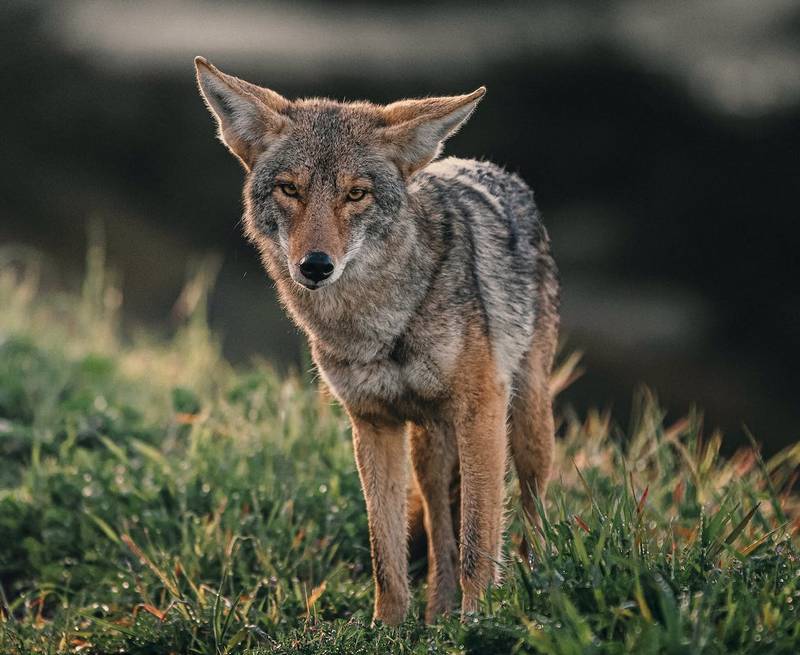
Barking dogs can attract coyotes. This interaction is rooted in the natural behaviors and instincts of both animals. Dogs often bark as a response to threats or unfamiliar presences, including coyotes. In turn, coyotes, curious or defensive, may investigate the source of the noise, potentially leading to dangerous encounters.
Why Do Dogs Bark at Coyotes?
Dogs bark at coyotes due to their instinctual response to perceived threats. This behavior stems from a dog’s natural protective instincts and territorial nature. When a dog senses a coyote nearby, they may bark to alert you, ward off the coyote, or express their discomfort with the unfamiliar presence.
How to Keep Coyotes Away When Walking
Ensuring safety during walks in areas where coyotes might be present involves several precautions. It’s important to keep dogs on a leash to maintain control and prevent them from chasing or approaching coyotes.
Additionally, avoiding areas known for coyote activity, especially during their active hours at dawn and dusk, can reduce the risk of encounters. Carrying a noise-making device, such as a whistle or horn, can help scare away coyotes if they come too close.
How to Stop Dog Barking at Coyotes
Training your dog to respond to the “quiet” command is beneficial in situations where barking might attract unwanted attention from coyotes.
- Start by allowing your dog to bark a few times, then say “quiet” in a calm, firm voice.
- When your dog stops barking, immediately reward them with a treat or praise.
- Repeat this process consistently to reinforce the behavior.
While barking dogs can attract coyotes, understanding and managing this behavior can prevent potentially dangerous interactions.
Taking steps to avoid encounters and training your dog to stop barking on command will help keep them safe, but it’s important to remember that the underlying behavioral issues (anxiety, territoriality, overprotectiveness, etc.) that were causing all of this to begin with will still be present.
And until you address those, any positive changes you see will only be temporary.
“Well, how do I make these changes last?”
By getting your dog to truly choose to follow your direction, that’s how. I tried many times to write out how you can do that before deciding it made more sense to just link you to the free video series that explains it better than I’d ever be able to.
The series is by a man named Dan who is one of the world’s leading dog obedience trainers. In it, he teaches you how to put an end to things like your dog barking at coyotes and all other misbehavior using his fast and easy-to-follow methods.
In the first video, Dan will reveal to you why the two most common methods of dog training only doom you to failure. You can watch the video now by clicking here. Follow the proven system he’ll show you in his series and you’ll never have to spend another second worrying about whether your dog will provoke a coyote attack ever again!
Are Coyotes Afraid of Barking Dogs?
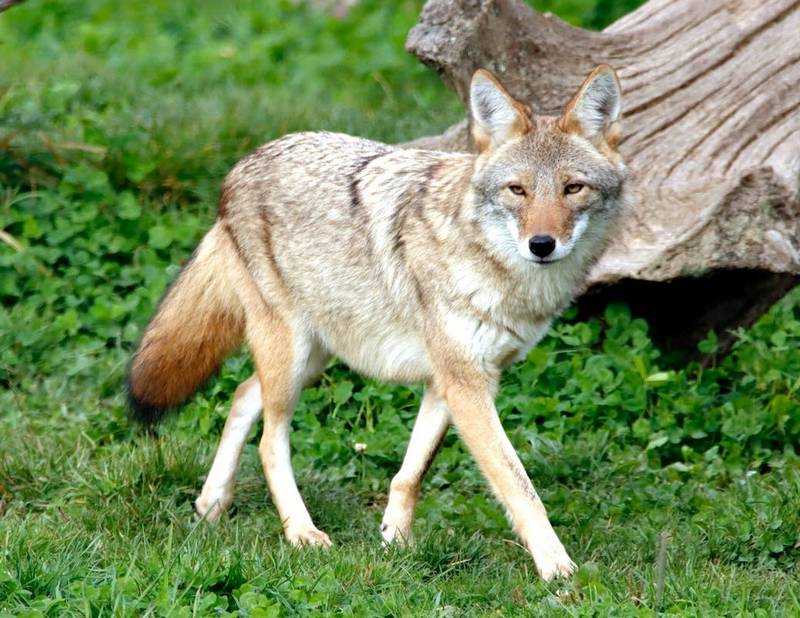
While some coyotes may be afraid of barking dogs, others can be attracted by the noise. Coyotes can also exhibit varying reactions to barking dogs based on the situation. In some instances, coyotes may feel threatened by the noise and display fear, while in other scenarios, particularly if they are accustomed to human environments, they may not be as easily intimidated.
Are Coyotes Scared of Dogs?
Coyotes’ reactions to dogs can vary. While some coyotes may be scared of dogs, especially larger breeds, others may not show fear. This difference in behavior is often influenced by the coyote’s experiences and the dog’s size, breed, and behavior.
Coyotes living in urban areas, where they are more used to human presence and domestic animals, might be less fearful of dogs. To avoid the risk of your dog being aggressive and provoking a coyote attack, you should ensure that they know the “quiet” command. You can learn it now in the first section.
Do Coyotes Attack Dogs?
Coyotes do attack dogs in some cases, but this is not common behavior and usually occurs under specific circumstances. Small dogs might be seen as prey, especially if unattended. Also, coyotes can exhibit defensive behavior if they feel threatened or if they are protecting their territory or young.
To mitigate the risk of attacks, you should supervise pets closely, especially in areas known for coyote activity.
Does Dog Poop Attract Coyotes?
Dog poop can attract coyotes. It carries the scent of the dog, which might intrigue a coyote, especially if they are searching for food. This interest is more pronounced in areas where coyotes have fewer natural food sources. Keeping yards clean of their waste can help in reducing the likelihood of attracting coyotes.
In conclusion, while coyotes may sometimes be afraid of barking dogs, their reactions are influenced by various factors, including their experiences and the specific context of the encounter. Understanding this dynamic is important, especially if you live in an area where interactions with wildlife are common.
Will a Coyote Attack a Dog on a Leash?
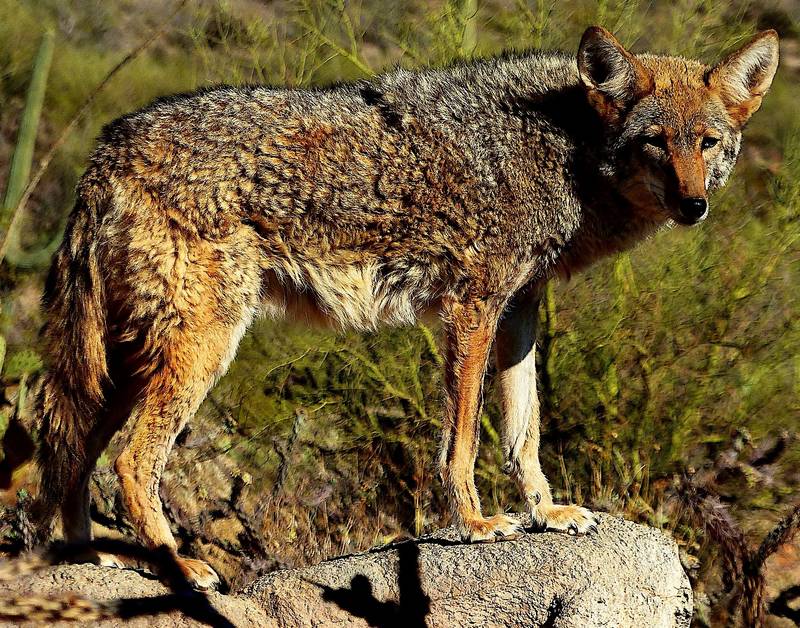
The likelihood of a coyote attacking a dog on a leash is generally low, but not impossible. Coyotes typically avoid humans and are less likely to approach a dog that is close to its owner. However, circumstances such as the coyote’s level of habituation to humans, its health, and the presence of young pups can influence this behavior.
Do Coyotes Attack Dogs Being Walked?
Coyote attacks on dogs being walked are rare. Such incidents are more likely to occur if the coyote perceives the dog as a threat, particularly during their breeding season (January to early March) or when they are protecting their young. Small dogs might be at higher risk due to their size. It’s important to be careful, especially in areas known for coyote sightings.
Coyote Deterrent While Walking
There are several deterrents that you can use while walking your dog to prevent coyote encounters. Carrying a noise-making device, like a whistle or an air horn, can help to scare away coyotes. Additionally, walking in well-lit areas, avoiding known coyote habitats, and keeping a close eye on the surroundings can significantly reduce the chances of an encounter.
It would also be a good idea to teach your dog the “quiet” command so that you’ll be able to silence them whenever necessary during your walks. You can learn it now in the first section.
How to Scare off Coyotes While Walking Dog
If you encounter a coyote while walking your dog, it’s important to know how to scare it off effectively. Make yourself appear larger by standing tall and waving your arms. Loud noises, such as yelling or using a whistle, can also deter a coyote. Importantly, maintain eye contact and back away slowly. Do not turn your back to the coyote or run.
In summary, while the risk of a coyote attacking a dog on a leash is low, it is possible. Awareness and preventive measures are key for you to ensure safe walks, especially in areas where coyotes are present. By understanding coyote behavior and adopting appropriate deterrent strategies, you can avoid any encounters.
How to Protect Dogs From Coyotes
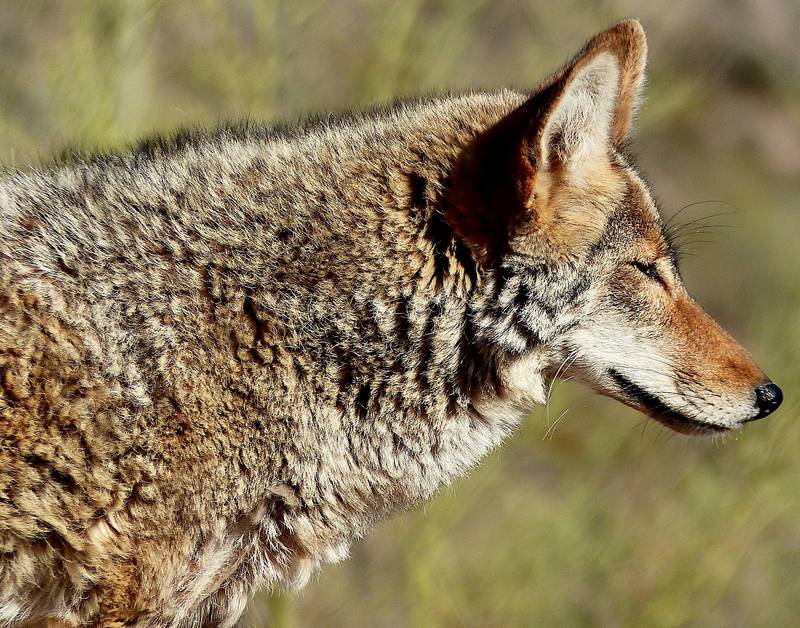
Protecting dogs from coyotes involves a combination of supervision, environmental management, and understanding coyote behavior. Keeping dogs on a leash, especially during walks in areas where coyotes may be present, is important. Additionally, securing your yard with coyote-proof fencing and removing attractants such as food and water sources can significantly reduce the risk of encounters.
How to Keep Coyotes Away From Dogs
To keep coyotes away from dogs, close supervision is key. Avoid leaving dogs outside unattended, especially at dawn and dusk when coyotes are most active. Installing motion-activated lights in your yard can deter coyotes. Additionally, removing food sources, including pet food and fallen fruit, can make your yard less attractive to them.
For information about keeping coyotes away from dogs during walks, go back to the first section now.
Will a Coyote Attack a Large Dog?
While coyotes avoid large dogs generally, they may attack if they feel threatened, especially during the mating season (January to early March) or when they have pups to protect. Large dogs are less likely to be viewed as prey compared to small dogs, but they can still be at risk, particularly in areas where coyotes have become accustomed to human presence.
Do Coyotes Attack Dogs in the Daytime?
Coyote attacks on dogs during the daytime are uncommon but can happen. Coyotes are typically more active at night and during twilight hours, so be more careful when letting your dog out to potty. However, if they are hungry or if their habitat is disturbed, they may venture out during the day. Still, you should be alert at all times, regardless of the time of day.
In conclusion, safeguarding dogs from coyotes requires proactive measures and awareness of the wildlife in your area. With proper supervision, environmental adjustments, and an understanding of the behavior of coyotes, you can significantly reduce the risk of dangerous encounters.
Do Coyotes Lure Dogs?
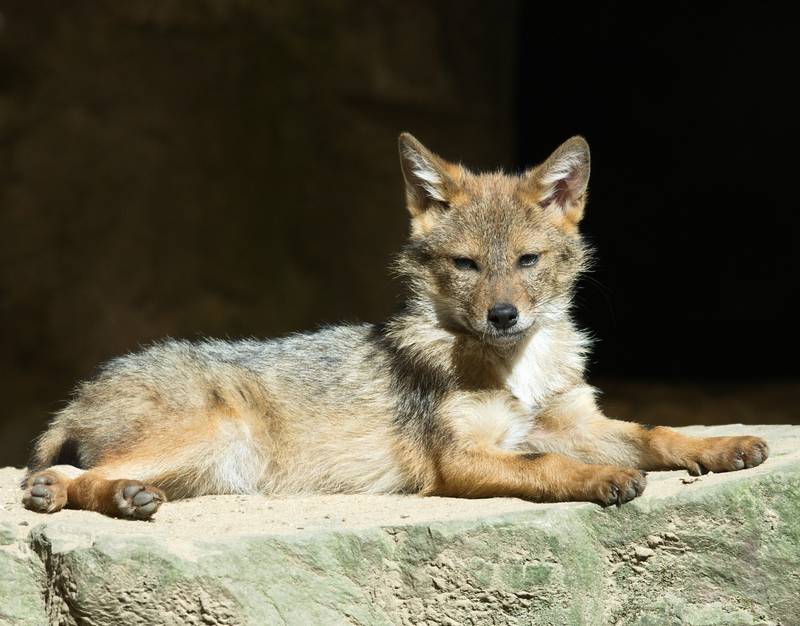
The concept of coyotes luring dogs is a topic of debate and anecdotal reports. Some believe that coyotes can engage in behaviors that might entice a dog to follow them, potentially leading the dog into a situation where it is outnumbered or at a disadvantage. However, concrete evidence supporting this behavior is limited, and it’s important to consider that coyotes are wild animals with complex behaviors.
Do Coyotes Kill Dogs?
Coyotes do kill dogs occasionally, but such incidents are relatively infrequent. Small dogs are at a higher risk, as they might be seen as prey by coyotes. Larger dogs might be attacked if a coyote perceives them as a threat, especially during the coyote breeding season (January to early March) or when pups are present.
Be especially careful if you live in an area known for coyote activity.
Coyote Barking at My Dog
If a coyote is barking at your dog, it’s typically a sign of defensiveness or territorial behavior. Coyotes bark to communicate and can bark at dogs to warn them off or express discomfort with their presence. In such situations, you should calmly remove your dog from the area to avoid escalation.
Learn more about keeping your dog away from coyotes by going back to the first section. If you’d like to first take a quick look at how a coyote in British Columbia, Canada responded with some warning barks at dogs nearby that were unwisely off their leash, here’s a short video:
How Do Coyotes Lure Dogs?
The idea that coyotes lure dogs is based on observations where a coyote appears to play or engage in non-aggressive behavior, which might attract a dog’s curiosity. The dog may then follow the coyote, leading it away from safety. It’s important to supervise dogs closely in areas where coyotes are present and to keep them on a leash to prevent them from chasing after wildlife.
While the idea of coyotes luring dogs is a subject of discussion, the risk of direct aggression from coyotes to dogs, particularly small breeds, is a more immediate concern. You should be aware of the signs of coyote presence and behavior, and take appropriate steps to protect your pets, including supervision and avoiding known coyote territories.
You’re probably ready to begin now that you have all of your questions about your dog barking at coyotes answered, so I’ll let you get going on things. Good luck, and thanks for reading our article “Do Barking Dogs Attract Coyotes? Are Coyotes Afraid of Barking Dogs?”.





